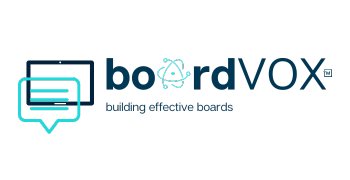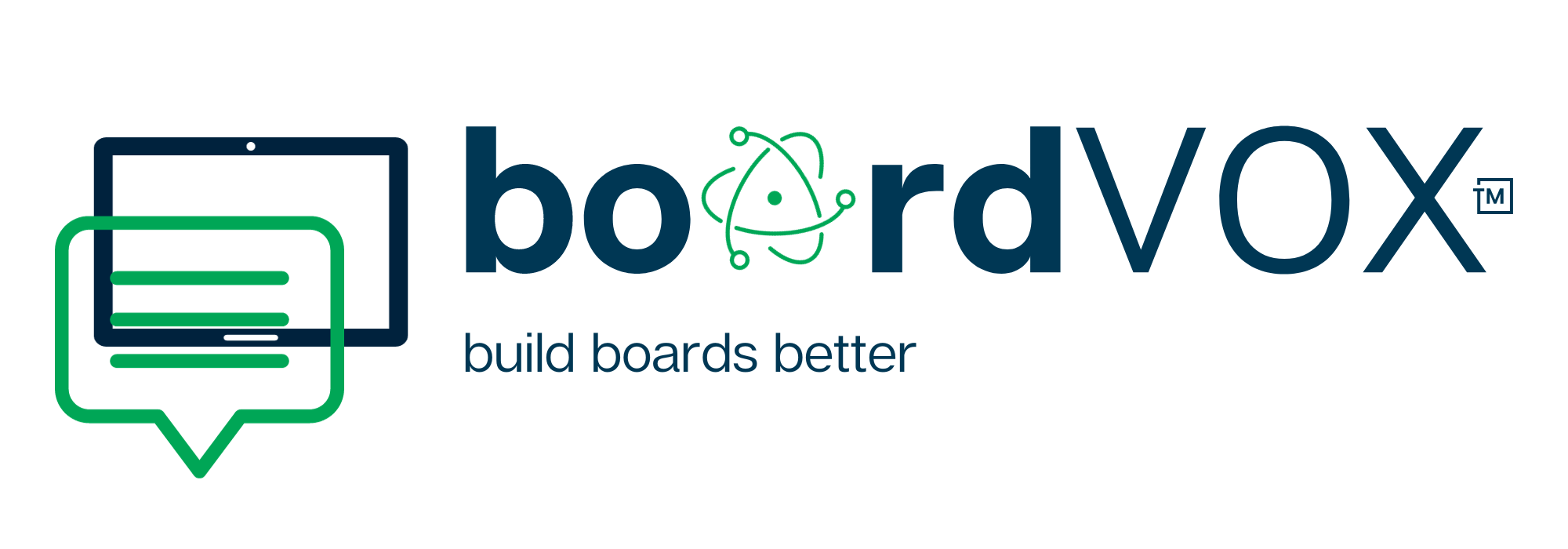Empowering
Good Governance Through You
... one board at a time
Download the Checklist and take the first step toward joining the Become Board Ready Program.
Download the Checklist and take the first step toward joining the Become Board Ready Program.
How we help
We are the
Voice, Tone and Expression of Good Governance
helping organizations to realize their full potential
by educating, informing, and supporting boards,
directors, and c-suite leaders
with the training, tools and services
to create the best value for today and the future.
How we help
We are the Voice, Tone and Expression of Good Governance
helping organizations to realize their full potential
by educating, informing, and supporting boards, directors, and c-suite leaders
with the training, tools and services to create the best value for today and the future.

Board & Director
Training
We support directors and c-suite leaders to be their best in the boardroom with coaching, workshops & online training.

Board Performance
Tools
We administer board evaluations, board improvement plans and provide technology to support improving board performance.

Board Operating
Support Services
We support boards to become more effective by offering services such as retreat facilitation, policy templates and admin tools.
Let's reimagine the future of board development.
We believe that every director holds the key to unlocking extraordinary boardroom potential. We also believe that the power to unlock sustainable economic growth resides with people just like you right there in the boardroom. Reputational risks are at an all time high. And board service is important work deserving of the best hearts and minds.
That's why we're making governance easier for smarter boards by helping directors embrace their profound responsibility and forge a path of independent thinking, ethical leadership and championing good governance.
Become Board Ready
This checklist is your entry point to the
Become Board Ready Program ...a guide designed to empower directors and aspiring board members to excel in their governance roles.
Empower yourself to:
Elevate Your Governance Expertise: Master the key principles that drive effective board leadership.
Strengthen Board Dynamics: Foster alignment, trust, and a shared understanding in the boardroom.
Confidently Navigate Your Role: Clarify your responsibilities and deliver value with confidence.
Enhance Strategic Oversight: Stay focused on purpose, accountability, and long-term success.
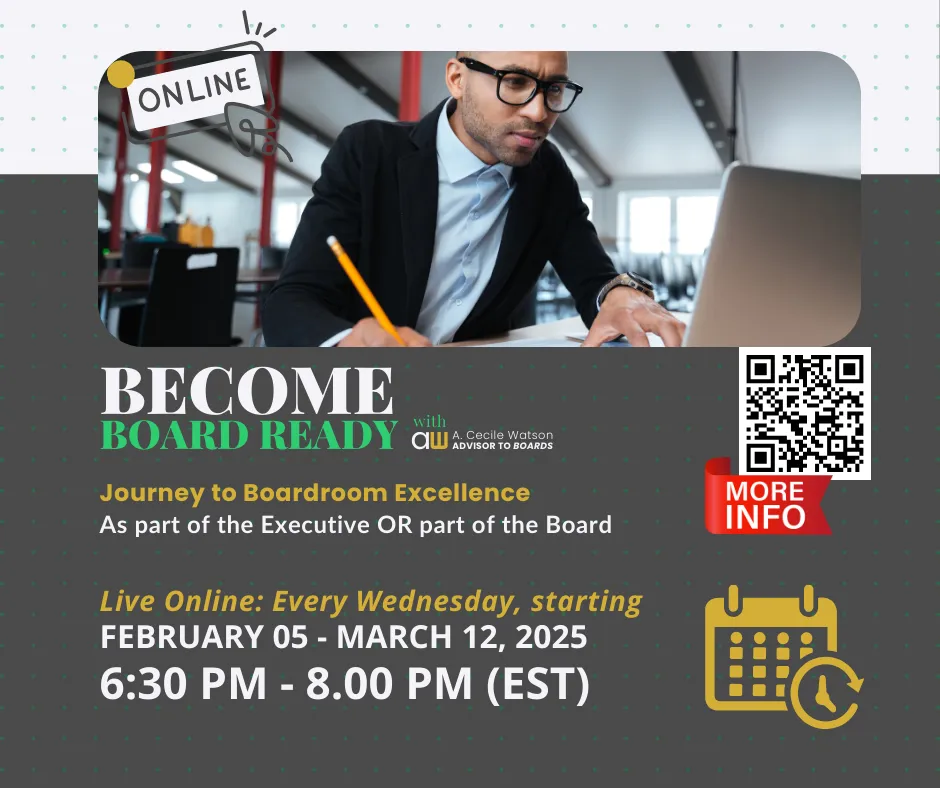
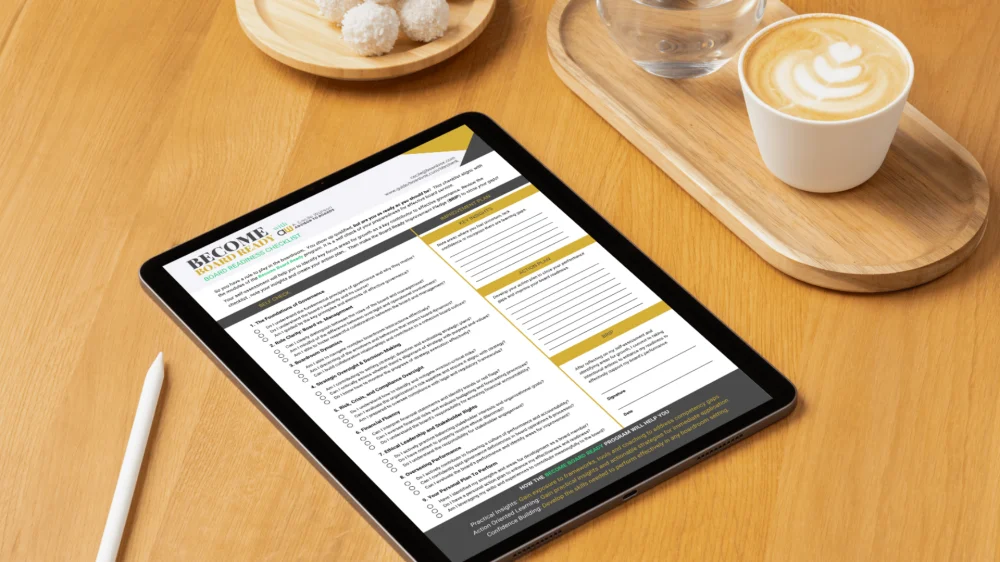
This checklist is aligned with the proven modules of our Become Board Ready program, so you can start assessing and addressing your readiness immediately.
Complete the form and you'll receive the Board Readiness Checklist directly in your mailbox.
Privacy Disclaimer:
We respect your privacy. The information you provide will only be used to deliver your checklist and occasional updates about governance insights and resources. We will never spam you, sell, or share your information with third parties.

RED FLAGS IN THE BOARDROOM CHECKLIST
Add this to your Board Engagement Toolkit to have a handy guide empowering you to:
Identify potential governance risks early
Be vigilant and avoid corporate governance failures.
Uphold the highest standards of transparency and ethics.

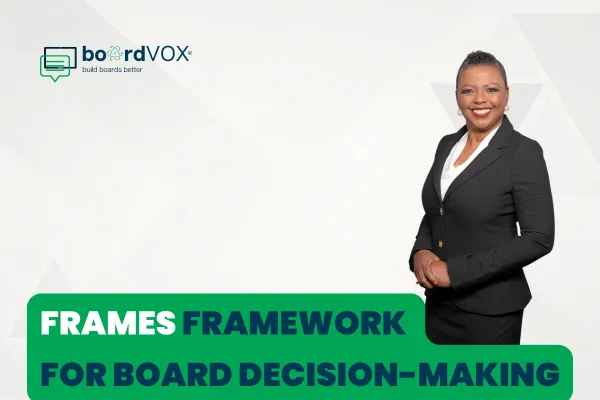
FRAMES: The Must-Have Decision-Making Framework for Every Boardroom
Introduction:
I often see management teams struggle with the question: What exactly should we include in proposals to the board? What does the board really want to know? Why does it sometimes feel like nailing down the board's interest is a moving target? And how much information is too much? They know that the goal is to make a compelling case that stands on more than just gut feel, yet knowing where to draw the line is sometimes tough, and the process unforgiving.
On the flip side, as a director, your role is to provide oversight and guide the organization’s strategy. That means being decisive, thoughtful, and focused on the big picture. When management presents a proposal, you’re not looking for a "Where's Wally?" adventure. You want the meat of the matter, served up clearly and concisely. A submission that tells a compelling story, outlines key pros and cons, and addresses the relevant risks. Ideally, you’re guided along a thoughtful path that lets you evaluate everything with clarity, without the guesswork.
Most business disciplines are backed by frameworks. As a director, you should have a structured framework too—one that doesn’t just streamline the decision-making process but also ensures you stay focused on the critical drivers that lead to well-informed outcomes. You want to ask the right questions, challenge the right points, and focus on what really matters.
That’s why I developed the FRAMES framework. I see it as a useful tool for management and boards alike. It's based on my experience in both the boardroom and the C-suite, and is designed to do the heavy lifting for you. Use of this framework is not about boxing you into rigid, programmatic thinking, and it’s certainly no substitute for curiosity or spontaneous debate. Instead, it’s a guide—a way to frame your thinking so that you’re asking the right questions and focusing on the core considerations that drive most strategic decisions. And these considerations are equally relevant to the presenter and the approver.
Each of the six factors in the FRAMES framework is supported by proven methods that will help you to navigate and evaluate proposals with confidence and clarity.

The FRAMES framework presented here provides insight on how you can simplify your deliberations by relying on tested and proven frameworks to guide your decision-making.
1. Financial Implications [F]
At its core, a director’s role involves financial stewardship. You need to scrutinize the financial projections of the proposal: Does it provide a sustainable return on investment? How does it affect cash flow, debt, or future financial flexibility? Directors must dig into the assumptions underpinning these figures and assess their realism.
2. Risk Assessment and Mitigation [R]
Every proposal comes with risks. Directors should evaluate the potential downsides of any initiative, from financial risks to reputational or operational challenges. Asking “What could go wrong?” isn’t about negativity—it’s about ensuring a balanced, well-informed decision.
3. Alignment with Strategic Objectives [A]
The key thing to keep in mind when considering a proposal that's on the table: Does this align with our strategic goals? It’s really easy to get caught up in the details or short-term benefits, but the primary focus should be whether the initiative moves the organization closer to its long-term objectives.
4. Managing Feasibility [M]
Sometimes, a proposal looks great on paper but is impossible or impractical to implement. Directors should focus on operational feasibility: Does management have the capacity, resources, and expertise to execute this proposal? Are there hidden obstacles that haven’t been addressed?
5. Effect on Stakeholders [E]
Every decision a board makes will affect various stakeholders—employees, customers, shareholders, and the broader community. Directors must think critically about the broader implications of any proposal: How will it impact these groups? Will it enhance shareholder value without compromising employee well-being or customer satisfaction?
6. Sustainability [S]
Finally, directors should always have one eye on the future. A proposal may deliver short-term results, but the real question is whether it contributes to the long-term sustainability and resilience of the organization. Does the proposal promote growth that can be sustained over time, or is it a one-off initiative with limited future potential?
In Conclusion:
So there you have it ... a simple FRAMES framework that can guide your thinking as you make those important board decisions. The elements are not intended to be sequential; just make sure that you give due consideration to each.
When you consider the sheer complexity of many boardroom decisions, "winging it" does not work. It does a disservice to the work of the board and the efforts of management. Frameworks on the other hand become indispensable tools for ensuring a thorough, disciplined, and transparent evaluation.
Final Thoughts: At the end of the day, the board’s role isn’t just to say yes or no to management’s proposals. It’s to ensure that decisions are made with a long-term vision in mind, rooted in strategy, risk awareness, and financial and operational reality. The FRAMES framework allows directors to be more rigorous in their analysis, more aligned with organizational goals, and more effective at driving the organization forward. It also serves management well as they prepare to justify their proposals before the board using a language that both parties have agreed and understand.
Drop me a note and share your perspective on this. I would love to hear if you think this framework can be helpful for you.
Stay tuned for more enlightening discussions, gripping stories, and actionable insights. And if you haven't already, be sure to subscribe so you never miss a post. Together, we're set to build better boards and build boards better by reshaping the landscape of boardroom leadership, one director at a time.
🌐💼 #decisionmaking #boarddevelopment #corporategovernance #boldlyethical #goodgovernance #businessresults #boardperformance #boardvox 🤝🔍
Know someone who might be interested in this blog? Please be sure to share it with them.
Also be sure to follow our boardVOX WhatsApp channel here. It is Especially for directors, c-suite leaders, corporate secretaries and all interested in good governance.
YES, YES ...I GET IT
This is exactly what I need right now.
I'm seeking a network of professionals who understand the challenges of the boardroom.
I want to elevate my leadership and have a real impact in the boardroom.
Continuous learning is crucial in our field, and I'm eager to stay ahead.
I'm sold on good governance and excellence.
Connecting with like-minded professionals in the industry is a top priority for me.
I'm committed to being a positive catalyst for change in the organizations I serve.
I believe in the power of good governance to shape the future of business and communities.
I want to learn how to steer governance processes positively and leave a lasting legacy.
It's time for my expertise and leadership to create a powerful impact in the boardroom.
IF THIS SOUNDS LIKE YOU, THEN DIVE RIGHT IN
Join Our Movement As
A Partner In Good Governance.
We're here to help you avoid the SHOULD'VEs and COULD'VEs in fulfilling your responsibilities as a director.
© 2024 A. Cecile Watson | boardVOX, All Rights Reserved
